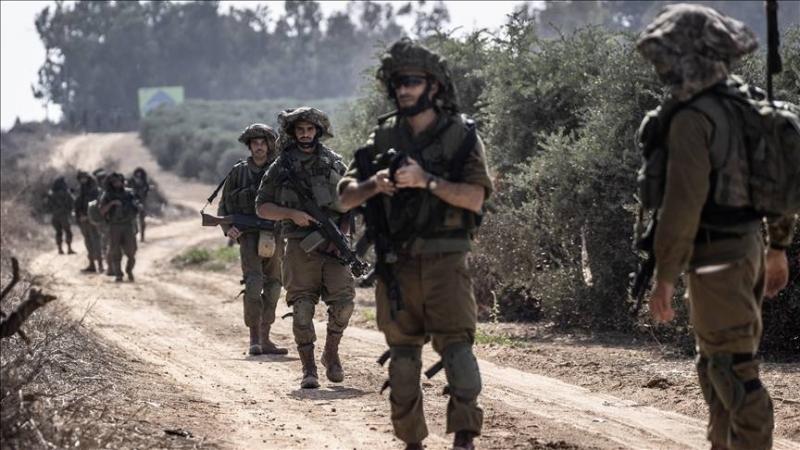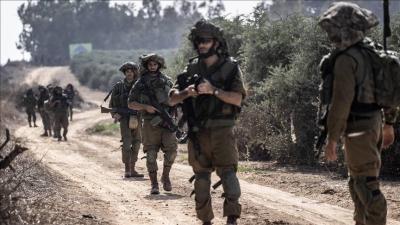An Israeli official stated that Israel is withdrawing some of its forces from Gaza as it shifts to more targeted operations against the Islamic Resistance Movement (Hamas), and is returning some reservist soldiers to civilian life to help the economy as the new year begins, which may see the war continuing for an extended period. The official said the war will continue in the Palestinian territory until Hamas is eliminated, adding that some of the withdrawn forces will prepare for a potential second front in Lebanon.
Since launching its assault on Gaza following Hamas’s attack across the border on October 7, Israeli officials have indicated that they planned the operation in three main phases. The first phase involved intensive bombing to open routes for ground forces and to drive civilians to evacuate, while the second phase was the ground invasion that began on October 27.
The official, who requested anonymity due to the sensitivity of the matter, stated that the Israeli army is moving toward the third phase of the war after the incursion of tanks and troops currently into a large part of the Gaza Strip, asserting its control largely despite Palestinian militants continuing to set ambushes from tunnels and hidden shelters.
The official told Reuters, "It will take at least six months and will include intensive clearing operations against the terrorists. No one is talking about launching a peace bathe from Shujaiya," referring to an area in Gaza devastated by the fighting.
In addition to the 1,200 people killed in the October 7 attack, Hamas has taken around 240 hostages. Israel states that it is determined to recover the hostages still held in Gaza, numbering 129. The ceasefire efforts mediated by Qatar and Egypt have sparked the possibility of releasing some of them.
Israel has mobilized 300,000 reservists for the war, which constitutes about ten to fifteen percent of its workforce. Some were quickly discharged, but government sources indicated that between 200,000 and 250,000 people are still serving in the military and are absent from their jobs or universities.
The official noted that the withdrawal focused on reservist soldiers and aims to "reactivate the Israeli economy." However, he added that some of the troops withdrawn from southern Gaza will be ready to serve on the northern border with Lebanon, where fighters from the Lebanese group Hezbollah exchange fire with Israel in solidarity with the Palestinians.
Israel has warned that if Hezbollah does not pull back, a full-scale war looms in Lebanon. Both Hamas and Hezbollah receive support from Iran, which is also executing long-range attacks against Israel through allied armed groups in Syria, Iraq, and Yemen.
The official stated, "The situation on the Lebanese front cannot continue. The next six months are a critical moment," adding that Israel would convey a similar message to the American envoy who is shuttling to Beirut.
In Gaza, the war between Israel and Hamas has caused unprecedented devastation, with the Ministry of Health reporting nearly 22,000 deaths, many of them civilians. Israel claims to have killed over eight thousand Palestinian fighters, indicating that Hamas, according to its own account, retains its core members. The Israeli estimate before the war was that the group includes about 30,000 fighters.
The Israeli army announced on Saturday that it would withdraw some reservists as part of what its Chief of Staff Lieutenant General Herzi Halevi described as a "reorganization" of the forces. Halevi told the soldiers on Tuesday, "From the very first moments of this war, we said it would take a long time." He added, "Will we ultimately be able to say that there are no more enemies around the State of Israel? I think that is an exaggerated ambition. But we will achieve a different security situation - as secure and stable as possible."
Israel stated that 174 soldiers - many of them reservists - have been killed during the battles in Gaza, while nine others were killed on the Lebanese border.




